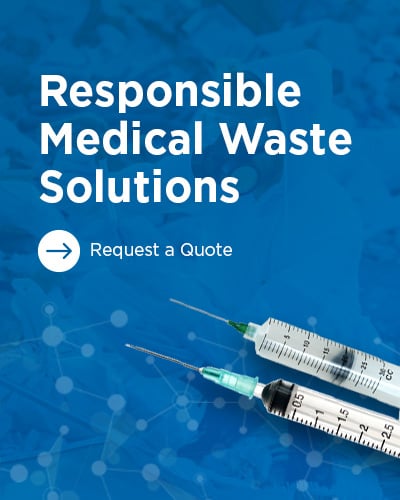 Medical waste, often called healthcare-associated waste, refers to anything contaminated with blood or other potentially infectious materials. It can come from hospitals, clinics, doctor's offices, nursing homes, and even households.
Medical waste, often called healthcare-associated waste, refers to anything contaminated with blood or other potentially infectious materials. It can come from hospitals, clinics, doctor's offices, nursing homes, and even households.
While most medical waste is not hazardous, some can be dangerous to human health and the environment if not correctly disposed of.
According to the World Health Organisation (WHO), medical waste accounts for about 15% of the total waste generated each year globally. Of that, approximately 85% is non-hazardous and can be safely disposed of in a landfill.
The remaining 15% is considered hazardous and must be treated as such. Hazard
Medical waste is any solid or liquid waste material generated in the diagnosis, treatment or immunization of human beings or animals. This type of waste can be contagious and seriously threaten public health if not properly disposed of.
Some examples of medical waste include:
- Blood and body fluids
- Sharps (needles, scalpels, etc.)
- Soiled dressings and bandages
- Used syringes
- Human tissue and organs
- Chemotherapy drugs
If not disposed of properly, medical waste can contaminate the environment and pose a severe health risk to humans and animals. Therefore, improper medical waste disposal is one of the leading causes of environmental pollution.
Medical Waste Recovery:
Medical Waste Recovery is the process of retrieving medical waste from healthcare facilities and other sources. Medical waste can include infectious waste, sharps, biohazardous material, and more. Medical Waste Recovery can help reduce the amount of medical waste in landfills and help keep communities safe by preventing the spread of infection and disease.
There are several different ways to recover medical waste. Medical Waste Recovery can be made through the on-site collection, off-site collection, or a combination of both. The on-site pool is when medical waste is collected directly from healthcare facilities by Medical Waste Recovery professionals. The off-site collection is when Medical Waste Recovery professionals collect medical waste from other sources, such as landfills or transfer stations.
Medical Waste Recovery is an essential part of keeping communities safe and healthy. It can also help to reduce the amount of medical waste that ends up in landfills. Medical Waste Recovery can be made through the on-site collection, off-s





